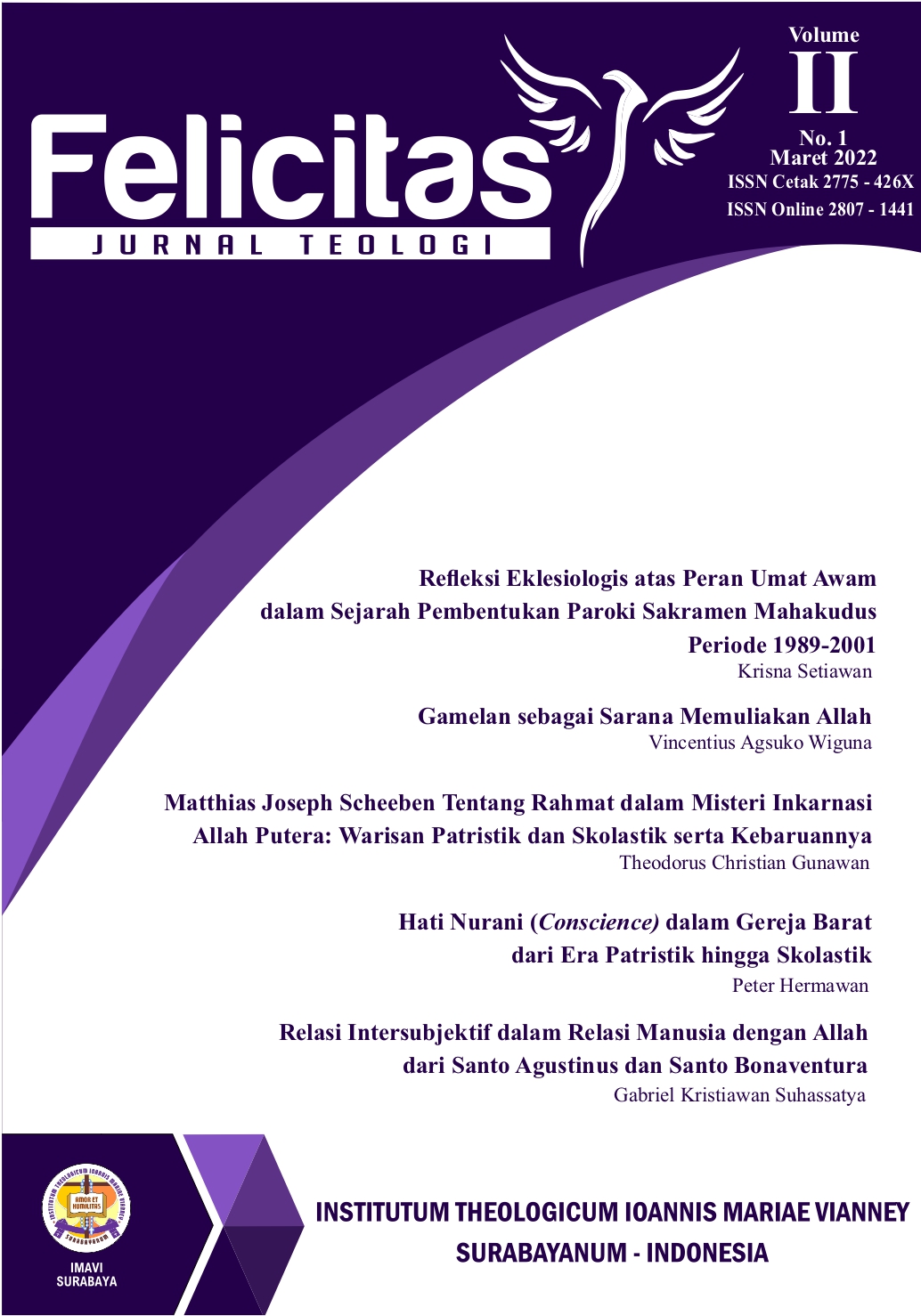HATI NURANI (CONSCIENCE) DALAM GEREJA BARAT DARI ERA PATRISTIK HINGGA SKOLASTIK
Kata Kunci:
Conscience, Synderesis, goodness, intellect, willAbstrak
Since the Stoic, conscience has been the subject of discussion. The Stoics argued that
conscience or syneidesis is the knowledge of goodness and self in relation to goodness.
In the New Testament Scriptures, St. Paul discusses conscience (syneidesis) as
knowledge of moral values and actions themselves. In the Western Church, conscience
has been discussed since the Patristic and Scholastic. This conscience in both eras is
divided into synderesis and conscience. In this Patristic era, St. Jerome thought that
synderesis was a spark of conscience. Meanwhile, St. Augustine called the conscience
(synderesis) a natural tribunal to recognize good and evil.
Whereas in the Scholastic era, Peter Lombard only revisited the commentary on the
book of Ezekiel from St. Jerome in the context of discussing the role of the will. St.
Thomas Aquinas calls synderesis a natural disposition or habit, while conscience is an
act of judgment involving synderesis. St. Thomas Aquinas discusses synderesis and
conscience in the mind. This is in contrast to St. Bonaventure associates conscience
with intellect, while synderesis lies with the will. This paper will also discuss the
relationship between the discussion of conscience between the figures of the Patristic
era and the Scholastic era as mentioned above.











